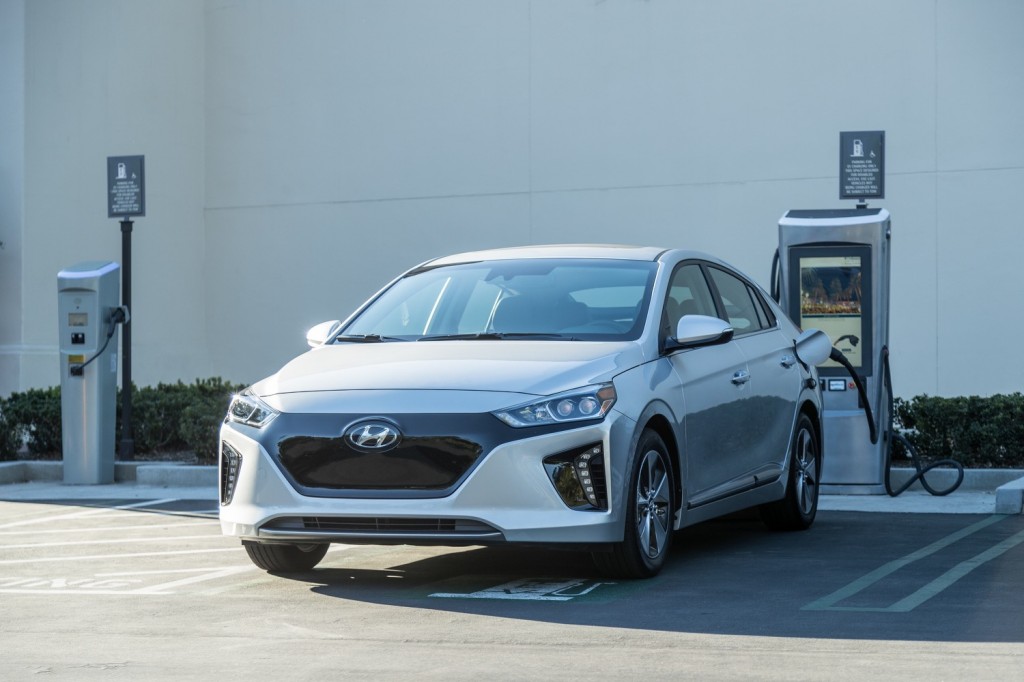When you drive into a U.S. gas station to pump gas, every pump works exactly the same way. The only choice to make is which grade of gasoline you want.
If you want diesel fuel, of course, you may have to find one of the six out of 10 stations that offer it.
DC fast charging for electric cars isn't nearly that simple, and it hasn't been since the start.
DON'T MISS: Five electric-car questions to worry about this year
It's by far easiest and most seamless for owners of Tesla electric cars, presently costing $70,000 or more.
They have access to the widespread Supercharger network for road trips.
Tesla, in fact, has built the model of how a fast-charging network should operate to enable all-electric cars to travel long distances on highways.
![Tesla Supercharger network, North American coverage map, Feb 2017 [graphic: Isaac Bowser] Tesla Supercharger network, North American coverage map, Feb 2017 [graphic: Isaac Bowser]](https://images.hgmsites.net/lrg/tesla-supercharger-network-north-american-coverage-map-feb-2017-graphic-isaac-bowser_100591618_l.jpg)
Tesla Supercharger network, North American coverage map, Feb 2017 [graphic: Isaac Bowser]
For any other electric car capable of fast charging, there's a hodge-podge of charging networks, locations, prices, and charging speeds.
That's always assuming, of course, that a novice electric-car driver understands the difference between the two incompatible standards for non-Tesla electric cars: CHAdeMO and Combined Charging System or CCS.
A recent 800-mile road trip undertaken by the new owner of a 2017 Chevrolet Bolt EV underscores the challenges still facing drivers of those cars who want to travel long distances.
READ THIS: Chevy Bolt EV: 800-mile trip in 238-mile electric car shows challenges remain
The Bolt EV, with its rated 238-mile range, really brings the challenges of today's DC fast-charging infrastructure into sharp focus.
Before 2017 and the Bolt's arrival, only costly Teslas had range ratings of 200 miles or more; every other EV ranged from 62 miles to 107 miles.
Traveling from San Francisco to Los Angeles in an 84-mile Nissan Leaf would be an arduous trek, and few owners even attempted it.
![Tesla Model S at Supercharger site in Ventura, CA, with just one slot open [photo: David Noland] Tesla Model S at Supercharger site in Ventura, CA, with just one slot open [photo: David Noland]](https://images.hgmsites.net/lrg/tesla-model-s-electric-car-road-trip-upstate-new-york-to-southern-california-photo-david-noland_100500011_l.jpg)
Tesla Model S at Supercharger site in Ventura, CA, with just one slot open [photo: David Noland]
Their Tesla brethren could knock off the trip with a couple of half-hour Supercharger stops en route, assuming no lineups waiting to charge at peak-travel times.
But with the Bolt EV, now the owners of at least one mass-priced battery-powered car should be able to match their Tesla counterparts.
Except ....
CHECK OUT: Automakers 'not even trying' to sell electric cars, Tesla says
Interstate 5, the most direct route between the San Francisco Bay Area and the LA Basin, has no CCS fast-charging sites that a Bolt EV can use.
Instead, DC fast chargers sit along Highway 101, which takes longer.
Those fast-charging sites are operated by two different companies, ChargePoint and EVgo. Each one requires a separate membership card.
![Fast-charging 2015 Nissan Leaf at evGo station in Auburn, MA [photo: John Briggs] Fast-charging 2015 Nissan Leaf at evGo station in Auburn, MA [photo: John Briggs]](https://images.hgmsites.net/lrg/fast-charging-2015-nissan-leaf-at-evgo-station-in-auburn-ma-photo-john-briggs_100558577_l.jpg)
Fast-charging 2015 Nissan Leaf at evGo station in Auburn, MA [photo: John Briggs]
Their pricing structures vary; EVgo has a monthly usage price and a one-time fee, roughly $10.
ChargePoint's pricing is all over the map, though, from free to high, because it doesn't own the stations.
It just provides the access for drivers, and record-keeping for site owners.
ALSO SEE: Six new electric cars coming for 2018 and 2019
Worse yet, though, the networks charge at different rates.
Most electric cars fitted with CHAdeMO (e.g. Nissan Leaf) or CCS (several vehicles from U.S. and German makers) max out at 50 kilowatts.
Some "fast" charging stations only deliver 24 kw, however, enough to recharge an 84-mile car to near 80 percent within half an hour.

2017 Hyundai Ioniq Electric
That's nowhere near enough for a Bolt EV with its 60-kilowatt-hour battery, however, and the ability to charge at up to 80 kw.
The 124-mile Hyundai Ioniq Electric tops that; it can charge at up to 100 kw.
Bolt EV driver Dawn Hall hadn't known about the varying CCS recharge speeds when she set out on her 800-mile road trip.
She learned when she had to pay $10 each for two successive 30-minute fast-charging sessions to get sufficient range.
Many electric-car advocates seem to expect that new buyers will somehow acquire all of this knowledge before embarking on their first road trip.

Owner Dawn Hall before 800-mile road trip in 2017 Chevrolet Bolt EV electric car
It remains entirely unclear where that education comes from: the carmaker? the franchised dealer? the charging network(s)? government entites?
We'd suggest mass-market acceptance of longer-range electric cars may remain problematic until those challenges are solved.
_______________________________________













